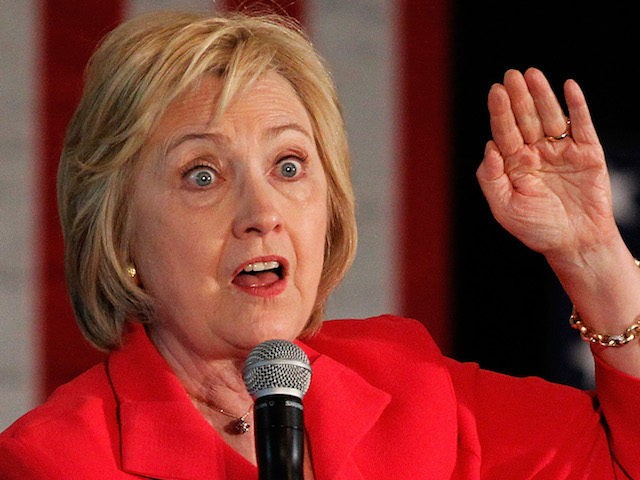Democratic frontrunner Hillary Clinton is closer to becoming her party’s nominee but farther from uniting her party behind her candidacy, as her rival Sen. Bernie Sanders (D.-Vt.) promised to continue his campaign.
The former first lady won Kentucky with 47 percent of the vote to 46 percent for Sanders.
“We just won Kentucky! Thanks to everyone who turned out. We’re always stronger united,” she Tweeted out shortly after the commonwealth’s Secretary of State Alison Lundergan Grimes called the state for her friend and political ally—roughly 10:30 p.m., ET.
The close win by Clinton was not only a shift from her large victory in 2008 but was also despite the strong union support Clinton was supposed to have there. Roughly 11 percent of Kentucky households have a union member—the highest rate among southern states.
Union members in Kentucky are what keep the Democratic Party vibrant in the traditionally conservative state, and the union members in auto plants and working for the Federal Express hub in Louisville were supposed to put Clinton over-the-top with ease.
There were widespread reports of voting irregularities, but the Sanders campaign said it accepted the results and was moving on. Because of the proportional distribution of delegates, Sanders will receive just under half the delegates.
Oregon was an easier win for Sanders, where he took 53 percent of the vote to Clinton’s 47 percent. It was a state that candidate Barack Obama won from Clinton 59 percent to 41 percent in 2008.
The real story of the night was the turnout.
Going first to the 2008 Kentucky Democratic Primary, Clinton beat Obama, 66 percent to 30 percent with the former secretary of state receiving 459,511 votes to Obama’s 209,954. In the 2016 contest, Clinton received 212,549 votes to Sanders’ 210,626.
In total votes cast, Democrats are down 246,290 in Kentucky.
In total votes cast, Democrats are down 221,060 votes in Oregon compared to the 2008 contest, when Obama beat Clinton 59 percent to 41 percent, 375,385 to 259,825.
The dropoff in Democratic turnout belies the mainstream media narrative that Democrats are motivated to defeat Trump and to participate in a vibrant primary contest.
While Republicans consolidate behind GOP presumptive nominee Donald J. Trump, the Democratic race continues on two tracks. On one track, Clinton has 2,294 delegates to Sanders with 1,523, bringing the former New York senator within reaching distance of the 2,383 threshold for nomination. On the second track, Sanders is still standing as the winner of 20 primaries and the emotional center of gravity for the party.
On the night he won Oregon and barely lost Kentucky, Sanders told more than 8,000 supporters that he wants to beat Trump in November—typically a construct to encourage party unity—but, first, he had to defeat Clinton.
“We are in until the last ballot is cast,” said Sanders to more than 8,000 of his supporters at the StubHub auditorium in Carson, Cailf.
“Many people say that Bernie Sanders should drop out and the people of California should not have the right to determine who the next president should be,” the Vermont senator said, reminding the crowd that one year ago, his campaign was behind by 60 points with no one believing that he had a chance. “But, this is the final push to win California,” he concluded.
In the June 7 primary, Clinton should get the delegates she needs to win the nomination. But the real contest for Clinton is against herself and Obama in 2008.
In the 2008 Golden State contest, Clinton beat Obama with 51 percent to his 43 percent and the total turnout was 4,794,846. If Democratic turnout fails to eclipse the 2008 total, it opens up a new discussion about what states are really in play and whether or not Democrats in 2016 are really into it or not.

COMMENTS
Please let us know if you're having issues with commenting.